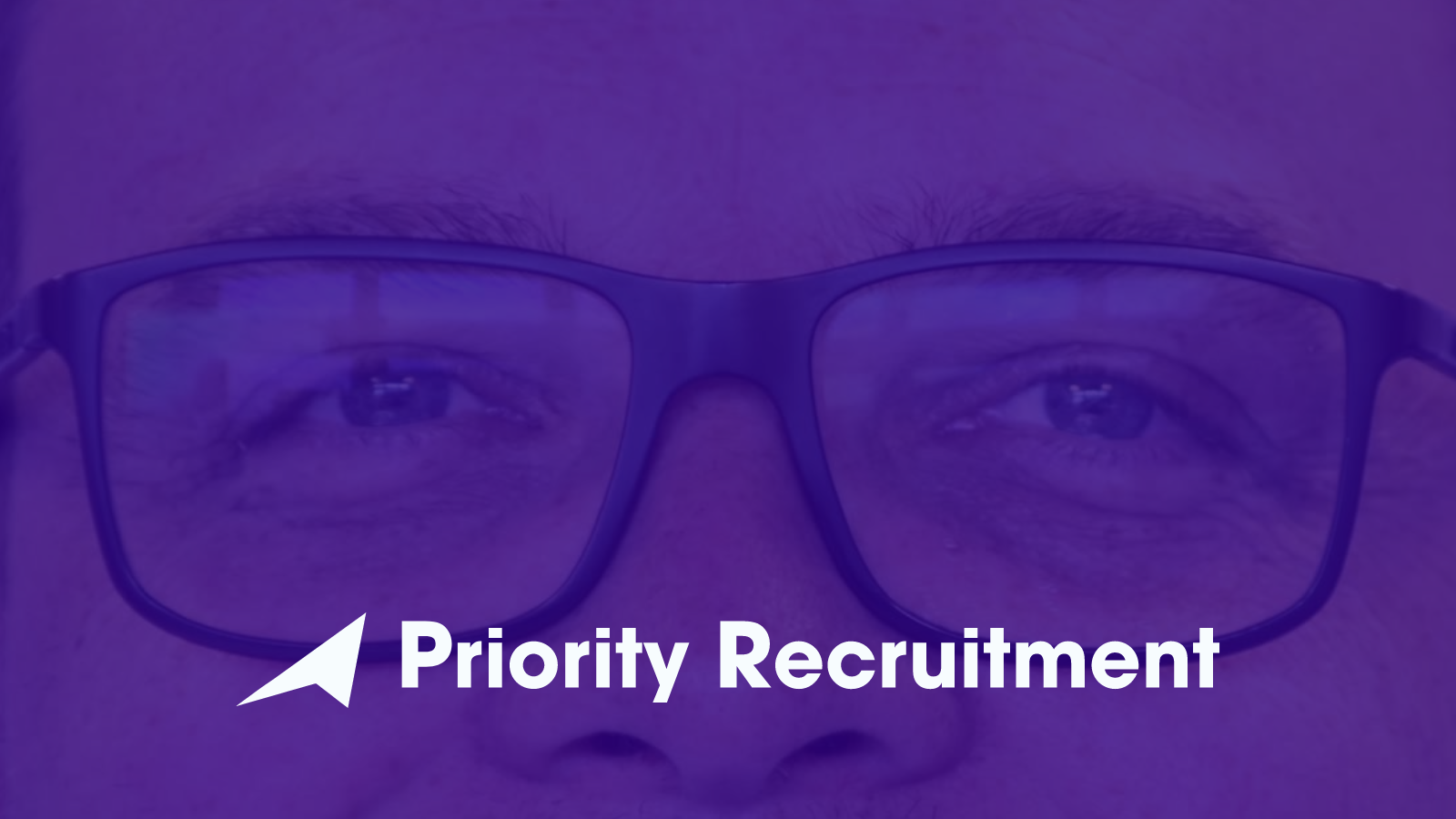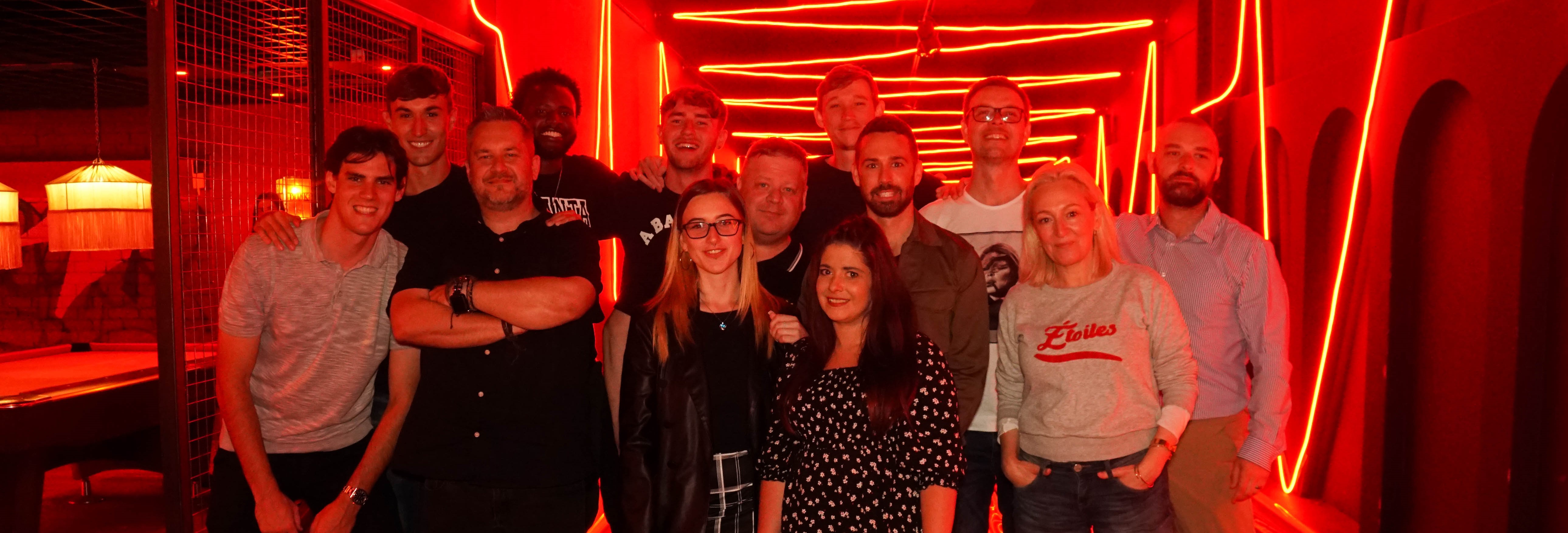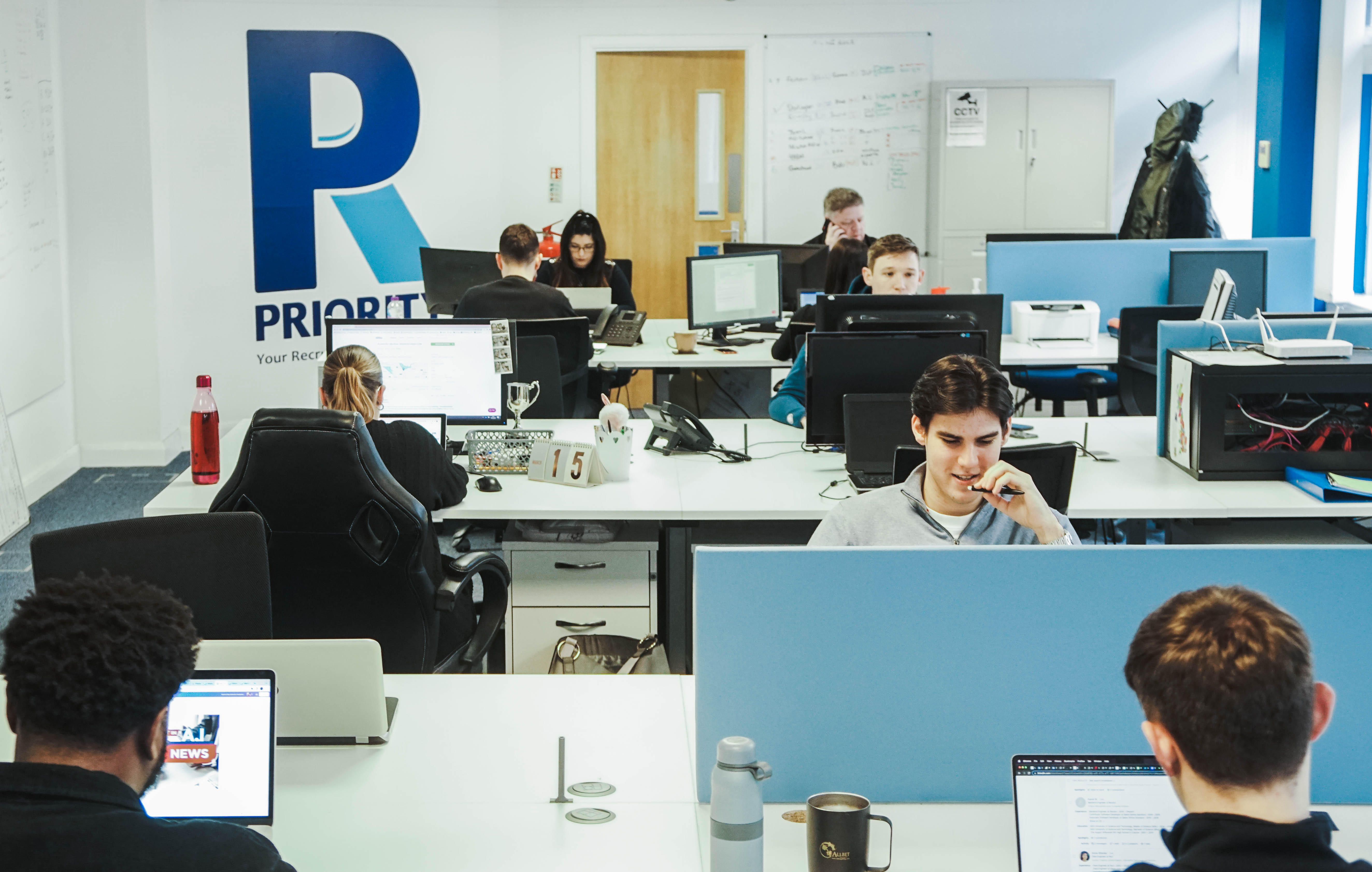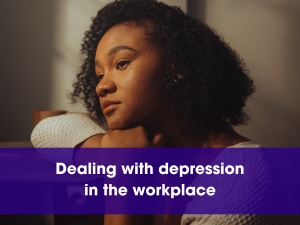Site Owner
As we celebrate World Patient Safety Day 2023, we are reminded of the theme for this year: "Engaging patients for patient safety" and the rallying slogan, "Elevate the voice of patients!" At Priority Recruitment, we understand the significance of these words more than ever. This year's theme underscores the pivotal role that as a recruitment agency, we also play in advancing safety in healthcare.
The World Health Organization emphasises that the perspectives of patients, families, and caregivers are invaluable, given their first-hand experience of the entire patient journey. Their insights offer a unique window into the challenges and opportunities within healthcare systems. Notably, studies have shown that meaningful patient engagement has the potential to reduce the burden of harm by up to 15%, resulting in the preservation of countless lives and billions of dollars each year.
This emphasis on patient and family engagement isn't a fleeting notion; it's firmly embedded as a fundamental principle in the World Health Assembly resolution (WHA72.6) on Global action on patient safety and in the Global Patient Safety Action Plan 2021-2030. It's clear that patient safety isn't just a concern for healthcare professionals; it's a collective endeavour that starts with recruitment and extends to the entire healthcare ecosystem.
Our commitment to patient safety begins at the very outset of our recruitment process, and it's a commitment we uphold not just on World Patient Safety Day but every day. Let's delve into how we ensure that patient safety remains paramount in our recruitment practices.
Pre-Screening: The Foundation of Excellence
Ensuring patient safety means meticulous pre-screening of our candidates. We leave no stone unturned to ensure that only the most qualified and trustworthy individuals enter the healthcare workforce. Here's an overview of our pre-screening process:
1. Relevant Experience
All our candidates have to have a minimum of 6 months of experience in the UK, as well as previous experience with the client's condititon (e.g., brain injury, cerebral palsy, etc.).
2. DBS Convictions
We conduct thorough background checks, including Disclosure and Barring Service (DBS) checks, to ensure that candidates have no criminal convictions that could compromise patient safety.
3. Reference Checks
References aren't just checkboxes for us. We scrutinise candidate references to verify their qualifications and performance, ensuring that there are no issues that might impact patient care.
4. Character References
We delve deeper into a candidate's character by seeking character references. We believe that a candidate's integrity and ethics are as crucial as their skills and qualifications.
5. Safeguarding Issues
Patient safety is closely tied to safeguarding. We investigate whether candidates have any history of involvement in safeguarding issues.
6. Training Verification
We ensure that all required training and certifications are up-to-date, leaving no room for lapses in knowledge or skills.
7. Additional Training
In addition to mandatory training, we assess whether candidates have pursued any additional training that enhances their ability to provide safe and effective care.
Placing Candidates: A Collaborative Effort
Once a candidate successfully clears our rigorous pre-screening, we present them for a meet and greet with our clients. We believe in collaboration, and our clients' satisfaction and comfort with the chosen candidate are paramount.
If the client is satisfied with the candidate, we proceed with the placement, confident that we've done our part to ensure the safety of patients.
Post-Placement: Ensuring Patient Safety
Our commitment doesn't end with placement. We understand that continuous monitoring and adherence to best practices are essential for patient safety. Therefore, it is our clients' and our responsibility to ensure that our placed candidates adhere to the following procedures:
1. Care Plans Followed
Our candidates rigorously follow patient care plans, ensuring that each patient receives the specific care they need.
2. Daily Evaluations and Observations
Daily evaluations and observations are critical in tracking patient progress and identifying any potential issues. Our candidates must update them diligently.
3. Regular Updates
During the crucial first month of placement, we require weekly updates to closely monitor the candidate's performance. Afterwards, monthly evaluations continue to ensure ongoing excellence in care.
At Priority Recruitment, we're not just in the business of filling roles; we're in the business of safeguarding patients. Our dedication to patient safety is unwavering, and it's a commitment we uphold every day, not just on World Patient Safety Day.
Join us in celebrating World Patient Safety Day 2023 by recognising the importance of patient safety in healthcare and the critical role that diligent recruitment plays in ensuring the highest standards of care.
______
Learn more about our healthcare division or browse our current vacancies.
Mapayi, Support Worker
"Michelle is a rare gem. She is a listening type, very accommodating and always doing welfare checks of the staff. She is the reason why I have worked through Priority for so long because even when there are any issues, she is always there for me and ready to assist."
Helen, Support Worker
"I have worked for Priority for two years. I have had regular shifts. All the management have been very supportive throughout. If I have had a problem it has been sorted out quickly and efficiently. Rhiannon has recently helped me a lot. I was finding a shift very difficult. I contacted Rhiannon and she was very helpful and supportive. Rhiannon covered my shifts which allowed me to have time off to recoup."
Claire, Case Manager
"I have worked alongside many care agencies in my professional capacity, either as an occupational therapy manager or as a case manager. I have never come across someone as diligent, hardworking or committed as the team at Priority Recruitment.
As case managers, we have a motto, ‘whatever it takes’, I can assure you Priority have the same ethos.
My account manager is a credit to Priority Recruitment and without doubt, the only person that I have worked with within this industry that I have trusted to do as I have asked, how I have asked and when I have asked.
He has found on many occasions the perfect match for my complex and challenging clients.
I hope his hard work and commitment is recognised."
The cost of living crisis is a major challenge facing households across the UK. Rising energy prices, food prices, and transportation costs are making it difficult for people to make ends meet. This is having a significant impact on retail businesses, as customers are having less disposable income to spend on discretionary items.
How the Cost of Living Crisis is Affecting Retail Businesses
The cost of living crisis is affecting retail businesses in a number of ways.
- Lower sales: As customers have less disposable income, they are spending less on discretionary items. This is leading to lower sales for retailers, especially those that sell non-essential goods.
- Increased competition: As customers become more price-conscious, they are more likely to switch to cheaper brands or retailers.
- Supply chain disruptions: The cost of living crisis is a global issue, and it is affecting supply chains all over the world. This is making it difficult for retailers to get the products they need, which can lead to shortages and higher prices.
- Labour shortages: Increased cost of living makes it more difficult for people to afford to work in retail. With established retail brands like Wilko failing, retail's reputation as a stable employment sector will only carry on faltering.
How Retailers Can Respond to the Cost of Living Crisis
To survive and thrive, retailers need to take action. Complacency and inability to respond to challenging new circumstances were partly what led to Wilko's demise.
As in any crisis, we can't underestimate the significance of having the right team on board. The difficult economic times have tarnished Retail's reputation as a stable employer, with many people requalifying and hoping to utilise their skills in a more secure, 9-to-5 environment. This creates more competition than ever when trying to find the best talent.
Retail & Sales recruitment has been our bread and butter for over 11 years. If you recognise any of the challenges described in this article, get in touch with our team - we might already have the solutions.
The Future of Retail in the Cost of Living Crisis
The cost of living crisis is a major challenge for the retail industry, but it is also an opportunity for retailers to innovate and find new ways to meet the needs of their customers. Retailers that can adapt to the changing landscape and provide value to their customers will be the ones that succeed in the long term.
Wilko, the UK's popular variety retailer, is on the brink of going into administration. This is a major blow to the retail sector, and it comes at a time when the industry is already facing significant challenges.
There are a number of factors that have contributed to Wilko's collapse.
- The cost of living crisis is having a major impact on consumer spending. The Consumer Price Index (CPI) in the UK has been rising steadily in recent months, and it is now at its highest level in 40 years. This is putting a strain on household budgets, and it is leading to a decline in discretionary spending.
According to a recent report by the British Retail Consortium (BRC), the cost of living crisis is having a "significant impact" on consumer spending. The report found that shoppers are cutting back on non-essential items, such as clothing and homewares. This is having a knock-on effect on retailers, many of whom are reporting declining sales.
- The rise of online shopping is putting pressure on brick-and-mortar retailers. The growth of online shopping has been a major challenge for the retail sector in recent years. Wilko has been slow to adapt to this trend, and it has lost market share to online retailers.
According to a recent report by PwC, the UK retail industry is expected to lose £100 billion in sales to online retailers by 2025. This is a major threat to brick-and-mortar retailers, who need to find ways to compete with online retailers.
- Retailers need to adapt to the digital age or risk going out of business. The retail landscape is changing rapidly, and retailers need to adapt to the digital age or risk going out of business. This means investing in online sales, developing a strong social media presence, and using data analytics to improve customer experience.
A recent study by the University of Oxford found that retailers that fail to adapt to the digital age are at risk of going out of business within five years. This is a wake-up call for retailers, who need to take action now to avoid the same fate as Wilko.
- Rising costs are putting a strain on retailers' margins. The price of goods and services has been increasing in recent months, and this is putting a strain on retailers' margins. This is especially true for retailers that rely on imported goods, as the cost of shipping has also been rising.
According to a recent report by the Confederation of British Industry (CBI), the cost of doing business in the UK is rising at its fastest pace in 20 years. This is putting a strain on retailers' margins, and it is leading to higher prices for consumers.
How the Wilko Collapse Will Affect People's Jobs
The Wilko collapse is a major blow to the UK economy, and it is likely to have a significant impact on people's jobs. The company employs over 20,000 people in the UK, and many of these jobs will be lost as a result of the administration.
The Wilko collapse is likely to have a ripple effect on other retailers, as well. As consumers become more cautious with their spending, they are likely to shop around for better deals. This could lead to a decline in sales for other retailers, which could result in job losses.
For example, a recent report by the British Retail Consortium (BRC) found that the retail sector is expected to shed 100,000 jobs in the UK by 2023. This is due to a number of factors, including the rise of online shopping, the cost of living crisis, and the ongoing pandemic.
The Wilko collapse is a sad day for the UK economy, and it is a wake-up call for retailers. The retail landscape is changing rapidly, and retailers need to adapt or risk going out of business.
As a result of the Wilko collapse, many people are likely to lose their jobs. This could have a significant impact on their families and their communities. The government will need to provide support to those who are affected by the collapse, and it will need to take steps to help the retail sector adapt to the changing landscape.
The government has already announced a number of measures to help businesses, including a £15 billion package of support for the retail sector. This includes a £3 billion fund to help retailers invest in their digital infrastructure and a £1 billion fund to help retailers recruit and train new staff.
The government will need to continue to provide support to the retail sector, and it will need to take steps to address the underlying challenges facing the industry. This includes the need to reduce the cost of business, the need to improve skills and productivity, and the need to make the UK a more attractive place to invest.
The Wilko collapse is a reminder that the retail sector is facing significant challenges. Retailers that fail to adapt to the changing landscape will be at risk of going out of business, and this could lead to job losses for thousands of people. The government will need to take action to help the retail sector adapt, and it will need to provide support to those who are affected by the collapse.
______________
If your job security has been affected by this or other events in the ever-changing retail landscape, do not hesitate to get in touch with our team or browse our current jobs.
Preparing for a job interview
A user guide for any interview at any level of seniority
A lot of the time I use the phrase 'I don't want to teach you to suck eggs' and even though I am not entirely sure what this means what I can tell you is that a lot of this content you will probably already know, some of these simple tips might still turn out useful when preparing for your job interview.
Do your homework
Whether it is a matter of days or a week (or more) you have before your interview – do your homework!
If you have some time sign up for Google alerts and set up alerts for that field or industry. There are several newsletters you can subscribe to for free daily industry-specific content; for Retail try The Grocer or Retail Week and do also set alerts for the company itself and their competition, visit their website and find out what the latest news or offers are for example and maybe even check out their financials (if relevant) on Companies House or Duedil – for free!
You need to talk passionately about the company and their industry. Your personality, passion and presence are what will set you apart from the competition so be prepared!
Study the brief
This is where we (the recruitment agency) should really be put to the task; we know our clients' business better than they often know themselves; make sure you have had a full brief and job description for the role in question as you want to identify yourself with what the company is specifically looking for for this role; maybe you have been asked to conduct a SWOT analysis on the company (if not do this anyway) and couple this with a 30/60/90 day plan (or 3/6/9/12 month plan) of exactly what you would do in this role should you be successful; if you present this at the interview you will impress them enormously!
Take a cheat sheet
Not something to keep looking down at during the interview as if you have lost your memory; maybe as a senior candidate you have been asked to conduct a SWOT analysis, if not have a couple of points briefly printed off detailing a couple of key achievements/accomplishments that you are most proud of from previous roles (relevant to the role you are interviewing for). If this is your first interview talk about accomplishments from school, college, or university or achievements from sports teams or clubs you might be involved with.
If you don’t get the opportunity to talk about this in the interview, then pass it over at the end of the interview so your potential employer has a resume of your highlights and achievements (without looking like you're bragging). Ironically people refer to this as a brag folder specifically in high-pressure sales interviews this would have been commonplace.
Scheduling the interview
OK, so I haven’t got anything statistical or measurable to back this up but apparently, candidates interviewed earlier get the job more often than those interviewed later; you’d think I would have these stats to hand but… Get an early spot so you and the interviewer are both fresh from a good night’s sleep! Rather than being tired from a long day of interviews!
The morning of the interview
You need to go into the interview in the right frame of mind, two hours of panicking before an interview isn’t where you want to be. Get yourself to the gym for 15 minutes of cardio followed by a hot shower so you can be fresh (and awake!) Nerves are normal and natural, but you do want to dissipate some of this nervous energy and this will get your blood pumping for sure! I always tell my candidates (whatever the seniority/whatever the role might be) to get the basics right; always dress to impress, be there early, make sure you have looked in a mirror before you have left to make sure you have made an effort on your presentation; we all make judgments based on first impressions; rightly or wrongly! Ensure you have ascertained from the agency/recruiter/the company itself what is expected in terms of dress code; you do not want to be in a suit and tie if the owner of the business is wearing ripped jeans, a t-shirt and Yeezy’s now do you? Common sense can help you here; hopefully, you will have visited this business before and will know what the general dress code is here; see below on imitation – wear what you see them wear!
Fuel Up!
I’m not going to tell you to not drink coffee; if you are anything like me then a couple of coffees are a must, however….. Coffee is a diuretic and does suck the moisture from your body so being dehydrated with a dry mouth is not ideal for an interview. Think about eating some fruit; apples are great for energy and leave your mouth fresh; drink some water and maybe have a couple of mints (just don’t go into an interview with chewing gum in your mouth!)
During the interview
People like to employ nice people, I mentioned this above; your personality, passion and presence are what will set you apart from the competition so when you walk into the building smile at the people you see; make eye contact and say hello – be nice! You never know who will be asked their opinion of you by the interviewer; it could be the receptionist, the concierge or the first person you speak to. Be enthusiastic about small talk; a lot of interviewers will very purposefully tell you the interview has finished and then walk you to the exit; often so you will relax and let your guard down; this bit at the beginning or end can be equally as important as the interview ‘proper’ be aware of this; standing up or sitting down are usual indicators of when an interview starts and finishes officially but you should treat the entire ‘visit’ as the interview.
Body Language
The sincerest form of flattery is imitation; mirror the interviewer's body language (subtly of course!) As this puts people at ease and plays to their ego…. Make eye contact (certainly don’t look away) but don’t stare! This shows positivity and confidence; it can also show you are telling the truth!
Ask questions!
Always ask questions! At the very least you should find out if they have any concerns or doubts about appointing you based on what they have seen and asked you already; this gives you the opportunity to give more details/revisit previous questions where the interviewer was not happy with the answers (perhaps you didn’t give enough details in your answer or maybe you misunderstand or misheard a question?) It always amazes me how even senior candidates can have nothing to ask; check out Zety specifically for some really different types of questions you can ask here. You should always ask questions!
Always be closing
Like any good presentation (and this is really what you are doing; presenting the best version of yourself) you should always end with a summary; reiterate that you would love the opportunity, say something like; “I would love to work with a dynamic company like yours”; the last thing you want the interviewer to think is that you don’t want to work for them!! Ask them what the next steps are; when you are likely to hear back (maybe who else they have in the process?!) Or the ‘assumptive close’ – “I look forward to hearing from you next week”.
Additional References and Information
- 20 most common interview questions
- If you are meeting a senior employee then think about getting some business cards! Get some simply designed business cards made up; pay a little more to have someone design them for you and make sure everyone you meet at the interview gets one! Keeping yourself ‘top of mind’ by doing this.
Browse our current jobs to book your next job interview!
Motivation is rather elusive, isn’t it? Some days you feel it, and other days you can’t grab a measly corner of it no matter how hard you try. You stare at the computer screen, willing yourself to type, create, and develop, and instead, you find yourself simply going through the motions, barely caring about the work you’re producing.
I’ve totally been there too. It could be due to something as simple as the weather, boredom or even lack of motivation at work.
But I’ve also got some good news. There are some key things that contribute to your work being motivating (or not), and once you recognize them, you have the power to redesign your workday in a way that gets you moving.
To help you get your head back in the game, here are some tips that will keep you motivated at work (Yayy!):
Don’t Think About it as Hard Work
Marie Stein said: “There is only one way for me to motivate myself to work hard: I don’t think about it as hard work. I think about it as part of making myself into who I want to be. Once I’ve made the choice to do something, I try not to think so much about how difficult or frustrating or impossible that might be; I just think about how good it must feel to be that, or how proud I might be to have done that. Make hard look easy.” Think about it: If the project you’re faced with isn’t viewed as drudgery, but rather as a piece of the puzzle that’s helping you along your career path, then perhaps the energy required to do it will be easier to come by.
Create Small Goals
I am sure you heard this advice before from Nelson Wang: “There’s a reason doughnut holes are so lovable. They’re easy to eat. Before you know it, you’ve eaten a dozen of them. This is how goals should be too. Of course, you should have a big, audacious goal. But make sure you break down that goal into bite-sized, consumable goals. This way you’ll feel like you’re making progress in your journey and you’ll also feel a sense of accomplishment when you complete the smaller goals. A feeling of progress and achievement is a beautiful combination.”
Rather than focusing on a large, scary goal, take one thing at a time, and break the big goal into ideas you can digest one at a time.
Try a To-Do List
An organised to-do list is literally life-changing. If you don’t have one, make one now! Create a list of all the tasks you need to complete, whether they are for today or the end of the month. Once you have your list, number the tasks of urgency (one being the most urgent), plan the tasks that you must complete that day and tick them off as you go. At the end of the day create a new list for tomorrow and drag over any uncompleted tasks.
Take Regular Breaks
Many of us get sucked into our work and neglect taking a break, making us feel restless, tired, and discouraged. Getting away from your desk, even for 10 minutes is vital to get your creative juices flowing and to feel energised. If you have a long lunch break, try taking a walk to get some fresh air and relax your mind.
Read Daily
Although it may sound counter-productive to set aside reading time when really what you’re looking for is motivation to work hard, sometimes it’s necessary to do something seemingly unrelated to tackle the task at hand. Developing a daily reading habit is one thing that’s likely to have a long-lasting impact on your thought processes, ultimately inspiring you in all areas of your life.
Stop Caring About the Things That Don’t Matter
Look very carefully and closely at your list and shave off anything that’s both truly demotivating and unnecessary for you to do. It’s not always best to finish what you started if, down the line, you can’t even remember the reason you started something in the first place. If you’re guilty of stressing over the most insignificant things that you can’t change, then stop now. The more you worry about unnecessary things, the more you’re going to make yourself sick, so learn to let go.
Set a Quit Time
Raise your hand if you’re motivated 24/7! I didn’t think I’d see any hands. It’s unrealistic to feel energized all the time. You need to give yourself a rest, and if that means giving yourself a specified set time to unplug or turn away from the demands of your job, then do it.
Congratulate Yourself
Nine times out of ten, we focus on what we’ve done wrong, instead of what we have accomplished. Over time, this constant negativity will lead to a loss of motivation. To change this, take two minutes before you go to bed to list your achievements of the day. You’ll be surprised by how many you come up with.
What’s the Bigger Picture?
Oprah Winfrey once said: "Create the highest, grandest vision possible for your life, because you become what you believe." Think about why you are doing this job and what you are working towards. If it’s a promotion, show why you deserve it and trust that you can triumph.
Often inspiration is lacking at work. However, by following these motivational techniques you can begin each day with enthusiasm as if it were your first.
Dealing with depression in the workplace
Picture this.
You are a manager in a large company or a start-up. You get a call from one of your employees who tells you that they can’t come in today. They give you no reason, when you ask for one they evade the question and when you press they say they don’t feel like coming in today.
Must leave you stumped right? After all, work is work, and everybody complains but we all get down to it. Work doesn’t just help us pay bills, it serves a sociological, social and psychological purpose. It provides us with identity, self-esteem, a sense of pride, respect and direction. Sure, there are days you would rather avoid morning traffic, crawl out of bed late, eat a big breakfast, watch a matinee show, get a beer and take an afternoon nap, no? Everybody has those feelings when they are not in the mood to go to work.
For most people, these feelings are Monday blues, lack of sleep, a hangover, issues with the boss, a fight with a loved one, or something fleeting that usually goes away after a double espresso or after a reminder about the payment for that new house or car; they snap out of it. Then there are those who can’t just snap out of this - this could be depression. When the simple task of getting out of bed and going to the office seems like a monumental task. If they dragged themselves to the office what follows is a listless mood, lack of concentration, drop in sociability, decreased energy levels and feelings of sadness.
Depression and other mental illnesses are affecting more people in the UK than ever before. A sixth of the population in England aged 16 to 64 have a mental health problem, according to statistics body NHS Digital; This means that as an employer or manager, it’s your responsibility to ensure that your staff feel comfortable enough to seek help from you if necessary.
Below there are some simple policies and procedures that will help to provide the proper support and encouragement any sufferers need to come forward and seek treatment or confide in you.
- Educate your employees about depression, the warning signs, symptoms and how it can affect performance in the workplace. Raising awareness not only helps people to recognise if they themselves are suffering, but the less taboo the subject, the more likely people are to come forward if they have already been diagnosed.
- If you have any existing employee assistance programmes in place, then make sure they know about this because it can be a big help when it comes to coping with mental illnesses. If you don’t already have anything like this, it’s well worth considering because the number of people diagnosed with depression in the UK rises every year so chances are that it will affect your business at some point.
- One of the most effective things you can do as an employer is to promote a culture of acceptance. Teach your employees that mental illnesses are no different to other ailments such as diabetes or asthma. This helps to eliminate any prejudices or judgements.
- If employees are happy to talk to you but want it to remain confidential, respect this and under no circumstances discuss their situation with anyone they haven’t consented to.
- Depression is not easy to overcome, and it will take time. Try to be as flexible as you can to help aid this. For example, they may take more sick days than usual - try not to get frustrated with this. Perhaps offering flexible working from home or reduced hours may help until they have made a full recovery.
"Noticing how your employees function daily will help immeasurably in spotting changes. Early detection of symptoms and acting on them can mean healthier, higher-functioning employees and a more productive workplace."
For more information about depression, visit these resources:
https://www.mentalhealth.org.uk/
Your Recruiter - Friend or Foe?
Lately Regularly, I notice a fair bit of negativity towards Recruiters & Agencies, which half of the time, is utter nonsense. So, by sharing a few personal experiences & work ethics, I hope to shed some light on the problem... From a recruiter's point of view!
As a recruiter, I take the time to get to know all about my candidates, from previous job roles, interests & quirks, to the name of their first car and the song they sing in the shower. For all the sceptics out there - No, I'm not planning to hack their bank accounts or guess answers to their secret questions… I just enjoy talking to people and learning new things.
"I believe that building strong and trusting relationships with a handful of candidates is much more valuable than 5-minute conversations with 100 candidates and firing volumes of CVs out to clients."
- Donna Thorpe, Recruitment Consultant
Let's put this to bed!
Not all recruiters are the same! Yes, there are a lot of greedy, inconsiderate ones, that's life! However, there are many genuine recruiters out there, who actually DO give a s**t about you and your career, they really do want to help you succeed.
Here are a few reasons I love recruiting. Hopefully, it will help you understand that it isn't all £ signs, we're not all the same... For the purpose of this blog, ‘the candidate’ will be referred to as ‘Alf’.
1) Job Satisfaction
After numerous chats about ourselves, Alf’s ideal job role, new job opportunities, interview prep etc, there’s nothing more satisfying than hearing Alf’s excited little yelp when I tell him he’s got the job! Watching him progress his career further over the years is the result of a job well done. Whether Alf earned me £100 or £10,000 (can't be much because I don't remember) I get a great deal of job satisfaction, as well as bragging rights for recruiting a superstar!)
I helped Alf change his life for the better - I approached him, I built a great relationship with him, I gave him the opportunity and now, I recruit for him!
2) Trust & Honesty
Getting to know Alf, hearing about his experience, relating to his stories and sharing similar tales builds a relationship. Good candidate relationships gain honesty and reliability, crucial attributes when establishing Alf's interest, availability and the reason he was sacked from Pound Stretcher 16 years ago... Alf also trusts that I'll provide accurate information & advice, doing what I can to secure him this job! It's good to work from the same page and allows me to communicate efficiently with my client; not wasting time with interviews that don’t take place or disheartened candidates because of misleading info.
I won't 'promote' or 'sell' a company that I don't believe in, I am honest from the get-go and expect the same in return from all my candidates.
3) It’s not what you know…
So true! Alf was recently made redundant from a large retailer and has friends of all ages, experience and management levels across the country. By helping Alf bag himself a great career, I was recommended to all his retail friends… HELLO! I specialise in Retail & Sales, to me this is like a sea of pure candidate gold. Party poppers, balloons, sweets and Tequila for everyone, yeah!
Overall, Be Selective - Not Dismissive!
As a candidate you should be selective with who you work with, some people are #?£@’s! I won't bore you with the number of Alfs I’ve worked and become friends with, or bang on about recruiters not all being money-grabbing leeches. So, here's what to look for in a good recruiter:
- How easy is it to develop a relationship with your recruiter? You should be able to talk freely about your career goals, what's important and what's not or queries you may have, so they can meet your requirements and ensure a positive outcome.
- Work with recruiters who specialise in your specific industry and actively network with the people you want to meet. A good recruiter should be there to create conversation, guide you to success and open doors that you didn’t know existed.
- Are they available? Recruitment is not a 9-5 job, your recruiter should make themselves available as much as possible. It's easy nowadays to drop a text/email or take 2 minutes to make a 'good luck' call. If they can't accommodate your availability, chances are, they aren't committed!
We like to be different - consultants at Priority aim to answer your calls any day or time, because we love what we do, talk that is! We are more than happy to share our knowledge and give advice to all job seekers, even if you're not suited to our vacancies - we’re just nice like that.
Don’t settle for less than you deserve.
It’s your job search, It’s your career, It’s your choice!
Categories
Latest Blogs
-
 Navigating Support Work Staffing Challenges During the Festive SeasonThe festive season brings joy, family time, and celebrations, but for support work teams, it also comes with unique challenges.…Learn More
Navigating Support Work Staffing Challenges During the Festive SeasonThe festive season brings joy, family time, and celebrations, but for support work teams, it also comes with unique challenges.…Learn More -
 What Black Friday Reveals About the State of UK Retail HiringBlack Friday has become the clearest snapshot of how ready UK retailers really are for peak season. It is no…Learn More
What Black Friday Reveals About the State of UK Retail HiringBlack Friday has become the clearest snapshot of how ready UK retailers really are for peak season. It is no…Learn More -
 7 Common Interview Mistakes That Cost Companies Top TalentHiring top talent is challenging. Even highly qualified candidates can drop out if your interview process lacks focus. Small mistakes…Learn More
7 Common Interview Mistakes That Cost Companies Top TalentHiring top talent is challenging. Even highly qualified candidates can drop out if your interview process lacks focus. Small mistakes…Learn More


























